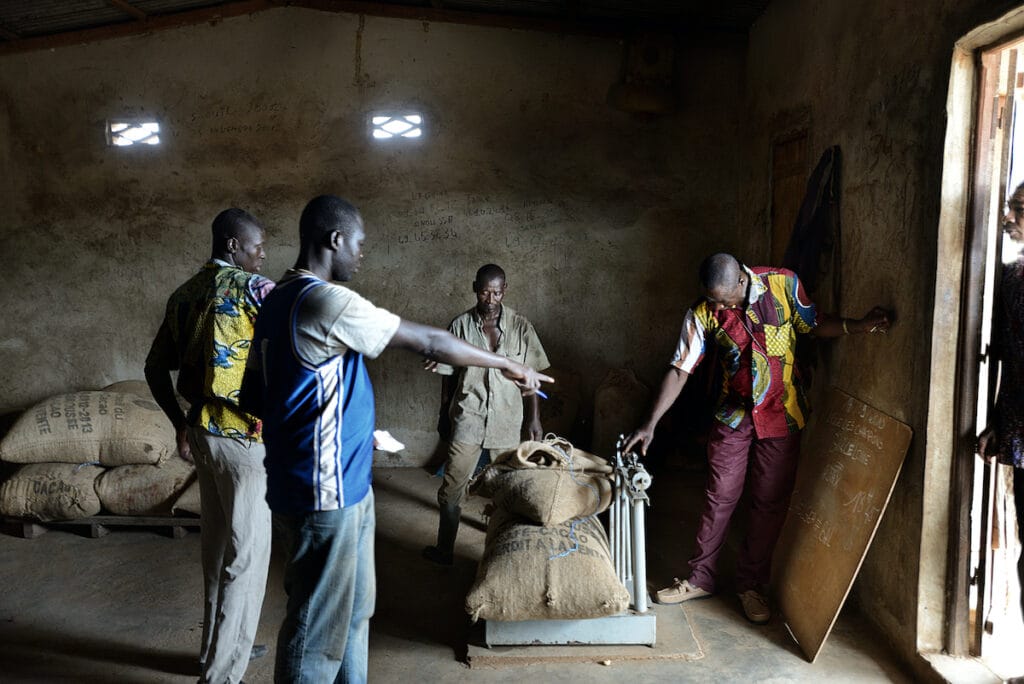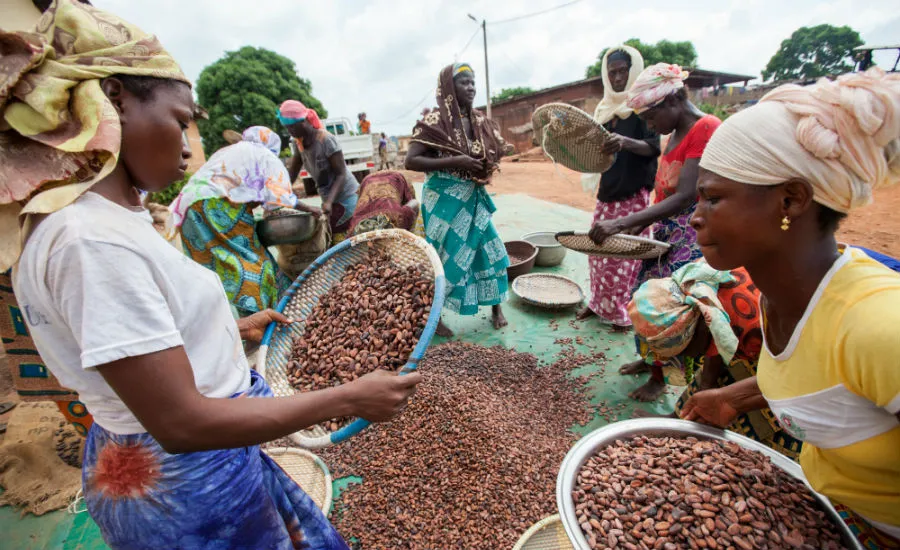The report found that Fairtrade financial interventions such as the Fairtrade Minimum Price and Fairtrade Premium, coupled with strong standards and hands-on support for producers, are key to helping the organisation move towards fairer and more sustainable global trade.
Earlier this month, cocoaradar.com reported that civil society groups in Ghana and Côte d’Ivoire had called for the suspension of Fairtrade’s new Living Income Cocoa Prices LIRP claiming the data on yields was “questionable and even hazardous”

The LIRPs are used across the cocoa and chocolate industry to benchmark the minimum income cocoa farming families should receive. These prices affect how much cooperatives are paid — and influence ethical sourcing standards globally.
Opportunities for women
Fairtrade International argues that it is making meaningful contributions in key sustainability areas, including economic security, climate resilience, and opportunities for women.
The organisation takes its findings from an “Evidence Map 2021 to 2024: Evidencing the Theory of Change,” where it reviewed 122 different studies, along with Fairtrade’s own programme and monitoring data and focus groups with staff, to connect the activities that Fairtrade carries out to results evidenced in research and other data.
“This ‘study of studies’ is a large undertaking that helps us to understand our impact across a range of areas from environmental effects to livelihoods to inclusion to trust and satisfaction,” said Fairtrade International’s Director of Global Impact, Dr. Arisbe Mendoza. “It’s important to carry out this kind of work so that we have an evidence-based guide to lead us forward and also make it easy for anyone to see the difference that Fairtrade makes and to have confidence in choosing Fairtrade.”
Fairtrade impact
The study, carried out by external researchers David Jodrell and Willemijn de Bruin, highlighted Fairtrade’s impact in the following core areas:
Economic benefits. (60+ studies analysed) Fairtrade provides farmers with greater price stability and resources thanks to mandatory minimum pricing and extra funds from the Fairtrade Premium. Almost 90% of studies examining the longer-term outcomes of economic gains associated with Fairtrade found at least some positive contributions, including higher incomes for farmers, improved farm revenues, higher net returns, and greater income stability.

The results found that farmers and workers value Fairtrade, particularly the financial benefits of the Fairtrade Premium, social investments, and training—close to 90 % express satisfaction with the services they receive from their Fairtrade producer networks. Moreover, the studies show that consumer trust in Fairtrade remains high and that businesses also value Fairtrade because it aligns with their sustainability goals and strengthens their reputation.
Living wages
The study, conducted every four years, also highlights areas where Fairtrade’s influence is less measurable, such as progress toward living wages for employees of large-scale farms, due to external factors that limit the impact of Fairtrade’s wage-related standards. While Fairtrade has implemented new measures in recent years, such as setting base wages and developing voluntary living wage reference prices for bananas, these haven’t yet been thoroughly studied, and the results are not yet clear.
Another area is meaningful progress toward inclusion for women. Fairtrade improves women’s opportunities and skills and increases representation within producer organisations. Yet, some studies still find that women’s participation and ability to influence decisions within their cooperative can be limited by broader social norms depending on the context.
Fairtrade International said the latest study’s findings would also contribute to Fairtrade’s future research agenda, programme development, and strategic planning to refine its next global strategy.
- Read the complete study here, or learn more about Fairtrade and its work at www.fairtrade.net/en.html
- From the Desk of CocoaRadar is the official media partner ECA 9th European Cocoa Forum.
- 'From Our Desk. To Yours. Daily.'
- Sign-up here for free and upgrade to an annual plan with a 25% discount


